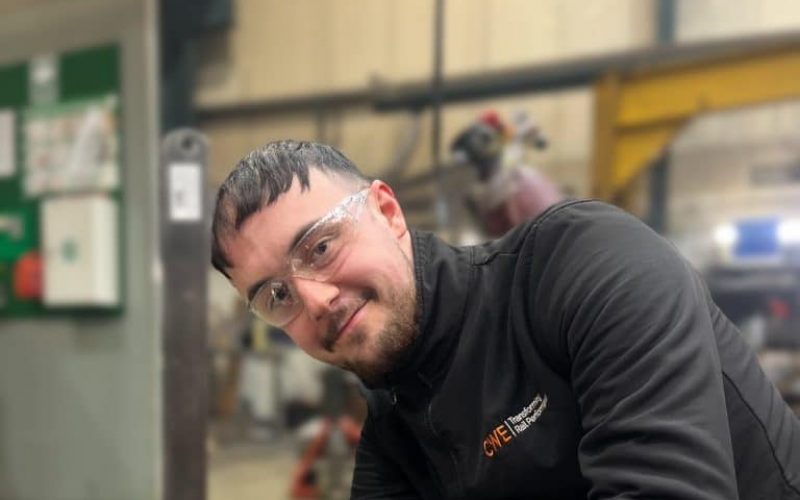National Apprenticeship Week – The Success of James
5th February, 2026
Our apprenticeship programme is one of our proudest achievements. Having started his career as an apprentice himself, our Managing Director, Dave Bates is
8th December, 2021
Many rail operators and their supply chains have seen big projects postponed during the past year, for reasons that need no real explanation. It’s been a tough time for every industry thanks to the combined effect of Covid-19 and Brexit – but, for rail, things look set to pick up during the first half of 2022. Here’s why…
There’s a buzz of optimism in rail industry circles; a feeling that postponed rail projects could finally get the green light during early 2022. That all those opportunities aren’t lost, only delayed. Rail suppliers and solutions providers should be poised and ready for a potential Q1/Q2 upturn in the industry. The opportunities are out there for those with the right capabilities and a proactive approach. Running lean has been a sensible choice during 2021, especially for smaller organisations – but for some, it might be time to start investing in growth again.
Rail freight has always provided a low carbon alternative to road transport and now that net zero is high on the agenda, more businesses – and particularly large retailers – have a growing interest in using trains to get their decarbonisation plans on track. It was a subject covered during Transport Day at the recent COP26 climate conference, where a panel of industry experts, including Network Rail, championed the green credentials of rail and particularly its use for freight.
According to the Rail Delivery Group, UK rail accounts for only around 2% of total transport emissions and about 0.6% of the UK total. At COP26, Network Rail further explored the potential of rail as a low carbon alternative to trucks on roads, stressing that a 20% shift from road to rail saves 1m tonnes of carbon and a 1% modal shift to freight saves 200K tonnes of carbon in the UK alone.
Rail’s strong environmental performance has already helped to reduce UK carbon emissions by up to 7.7 million tonnes every year. With the introduction and rapid development of greener technologies, such as hydrogen, this number will keep increasing. Yet another great reason for increased investment in rail, and for optimism across the industry.
From extended electrification projects and battery storage, to fuel cells and hydrogen powered trains, the future holds exciting new possibilities for both passenger and freight rail transport. Add artificial intelligence and machine learning monitoring technologies into the mix, along with a new high speed rail network, and it’s clear that rail will soon be shaking off it’s ‘old-fashioned’ image.
It’s going to mean new challenges and new opportunities for the organisations that make up the rail supply chain, especially the smaller regional businesses that can be agile and are ready to adapt. Those that do develop their operations and processes in line with market changes will not only see the benefit in their own business, they will also be crucial to the success of our rail industry over the months and years ahead.

5th February, 2026
Our apprenticeship programme is one of our proudest achievements. Having started his career as an apprentice himself, our Managing Director, Dave Bates is
26th January, 2026
At CWE, we’re proud to be part of the UK rail industry. We believe it’s a great place to work and that our
22nd January, 2026
✨ Wrapping Up 2025: A Year of Growth, Learning & Momentum ✨ As 2025 comes to a close, we reflect on the milestones,